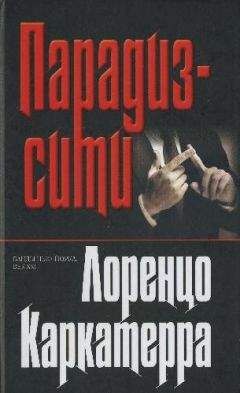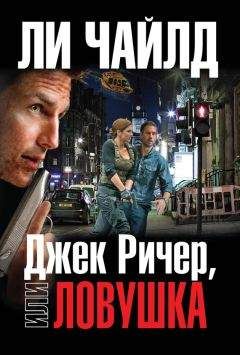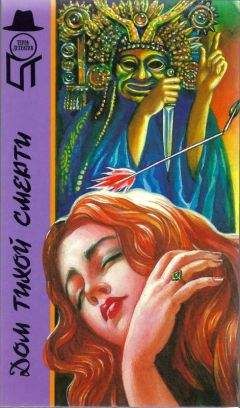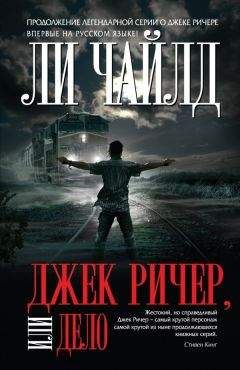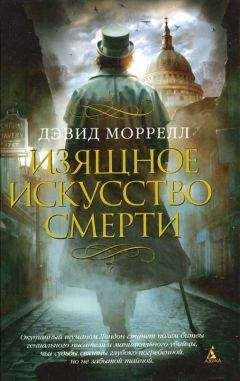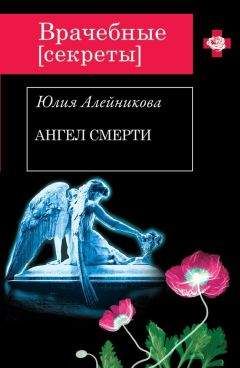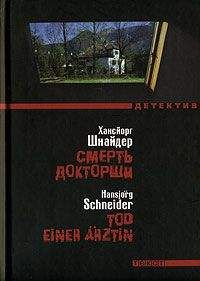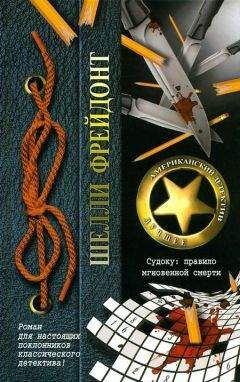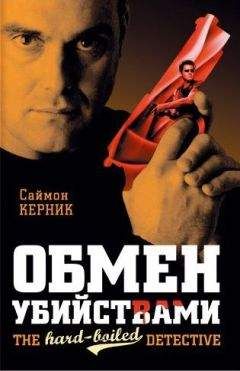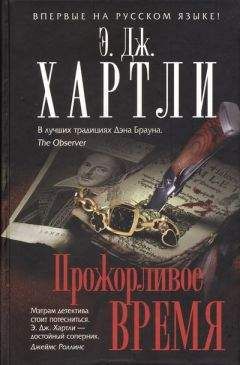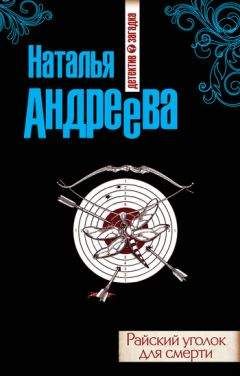Ли Чайлд - "Этаж смерти" with W_cat
Скачивание начинается... Если скачивание не началось автоматически, пожалуйста нажмите на эту ссылку.
Жалоба
Напишите нам, и мы в срочном порядке примем меры.
Описание книги ""Этаж смерти" with W_cat"
Описание и краткое содержание ""Этаж смерти" with W_cat" читать бесплатно онлайн.
Маргрейв — крохотный идеальный городок. Настолько идеальный, что это пугает.
Бывший военный полицейский Джек Ричер, ведущий кочевой образ жизни, приходит в Маргрейв, намереваясь покинуть город через пару дней. Однако в этот момент в Маргрейве происходит первое убийство за тридцать лет. Его вешают на Ричера, единственного чужака в городе. И для него начинается кошмар... первым действием которого становятся выходные в тюрьме, на этаже смерти, в обществе заключенных, отбывающих пожизненное заключение.
По мере того, как начинают просачиваться отвратительные тайны смертельного заговора, поглотившего весь город, растет счет трупам. И смерть становится эпидемией.
[238] To calm down, I ran music through my head. The chorus in “Smokestack Lightning.” The Howling Wolf version puts a wonderful strangled cry on the end of the first line. They say you need to ride the rails for a while to understand the traveling blues. They’re wrong. To understand the traveling blues you need to be locked down somewhere. In a cell. Or in the army. Someplace where you’re caged. Someplace where smokestack lightning looks like a faraway beacon of impossible freedom. I lay there with my coat as a pillow and listened to the music in my head. At the end of the third chorus, I fell asleep.
[239] I WOKE UP AGAIN WHEN BAKER STARTED KICKING THE BARS. They made a dull ringing sound. Like a funeral bell. Baker stood there with Finlay. They looked down at me. I stayed on the floor. I was comfortable down there.
[240] “Where did you say you were at midnight last night?” Finlay asked me.
[241] “Getting on the bus in Tampa,” I said.
[242] “We’ve got a new witness,” Finlay said. “He saw you at the warehouse facility. Last night. Hanging around. At midnight.”
[243] “Total crap, Finlay,” I said. “Impossible. Who the hell is this new witness?”
[244] “The witness is Chief Morrison,” Finlay said. “The chief of police. He says he was sure he had seen you before. Now he has remembered where.”
3
[245] THEY TOOK ME BACK TO THE ROSEWOOD OFFICE IN HANDCUFFS. Finlay sat at the big desk, in front of the flags, under the old clock. Baker set a chair at the end of the desk. I sat opposite Finlay. He took out the tape machine. Dragged out the cords. Positioned the microphone between us. Tested it with his fingernail. Rolled the tape back. Ready.
[246] “The last twenty-four hours, Reacher,” he said. “In detail.”
[247] The two policemen were crackling with repressed excitement. A weak case had suddenly grown strong. The thrill of winning was beginning to grip them. I recognized the signs.
[248] “I was in Tampa last night,” I said. “Got on the bus at midnight. Witnesses can confirm that. I got off the bus at eight this morning where the county road meets the highway. If Chief Morrison says he saw me at midnight, he’s mistaken. At that time I was about four hundred miles away. I can’t add anything more. Check it out.”
[249] Finlay stared at me. Then he nodded to Baker who opened a buff file.
[250] “Victim is unidentified,” Baker said. “No ID. No wallet. No distinguishing marks. White male, maybe forty, very tall, shaved head. Body was found up there at eight this morning on the ground against the perimeter fence close to the main gate. It was partially covered with cardboard. We were able to fingerprint the body. Negative result. No match anywhere in the database.”
[251] “Who was he, Reacher?” Finlay asked.
[252] Baker waited for some sort of reaction from me. He didn’t get one. I just sat there and listened to the quiet tick of the old clock. The hands crawled around to two thirty. I didn’t speak. Baker riffed through the file and selected another sheet. He glanced up again and continued.
[253] “Victim received two shots to the head,” he said. “Probably a small-caliber automatic with a silencer. First shot was close range, left temple, second was a contact shot behind the left ear. Obviously soft-nosed slugs, because the exit wounds removed the guy’s face. Rain has washed away the powder deposits but the burn patterns suggest the silencer. Fatal shot must have been the first. No bullets remained in the skull. No shell cases were found.”
[254] “Where’s the gun, Reacher?” Finlay said.
[255] I looked at him and made a face. Didn’t speak.
[256] “Victim died between eleven thirty and one o’clock last night,” Baker said. “Body wasn’t there at eleven thirty when the evening gateman went off duty. He confirms that. It was found when the day man came in to open the gate. About eight o’clock. He saw you leaving the scene and phoned it in.”
[257] “Who was he, Reacher?” Finlay said again.
[258] I ignored him and looked at Baker.
[259] “Why before one o’clock?” I asked him.
[260] “The heavy rain last night began at one o’clock,” he said. “The pavement underneath the body was bone dry. So, the body was on the ground before one o’clock when the rain started. Medical opinion is he was shot at midnight.”
[261] I nodded. Smiled at them. The time of death was going to let me out.
[262] “Tell us what happened next,” Finlay said, quietly.
[263] I shrugged at him.
[264] “You tell me,” I said. “I wasn’t there. I was in Tampa at midnight.”
[265] Baker leaned forward and pulled another sheet out of the file.
[266] “What happened next is you got weird,” he said. “You went crazy.”
[267] I shook my head at him.
[268] “I wasn’t there at midnight,” I said again. “I was getting on the bus in Tampa. Nothing too weird about that.”
[269] The two cops didn’t react. They looked pretty grim.
[270] “Your first shot killed him,” Baker said. “Then you shot him again, and then you went berserk and kicked the shit out of the body. There are massive postmortem injuries. You shot him and then you tried to kick him apart. You kicked that corpse all over the damn place. You were in a frenzy. Then you calmed down and tried to hide the body under the cardboard.”
[271] I was quiet for a long moment.
[272] “Postmortem injuries?” I said.
[273] Baker nodded.
[274] “Like a frenzy,” he said. “The guy looks like he was run over by a truck. Just about every bone is smashed. But the doctor says it happened after the guy was already dead. You’re a weird guy, Reacher, that’s for damn sure.”
[275] “Who was he?” Finlay asked for the third time.
[276] I just looked at him. Baker was right. It had got weird. Very weird. Homicidal frenzy is bad enough. But postmortem frenzy is worse. I’d come across it a few times. Didn’t want to come across it anymore. But the way they’d described it to me, it didn’t make any sense.
[277] “How did you meet the guy?” Finlay asked.
[278] I carried on just looking at him. Didn’t answer.
[279] “What does Pluribus mean?” he asked.
[280] I shrugged. Kept quiet.
[281] “Who was he, Reacher?” Finlay asked again.
[282] “I wasn’t there,” I said. “I don’t know anything.”
[283] Finlay was silent.
[284] “What’s your phone number?” he said. Suddenly.
[285] I looked at him like he was crazy.
[286] “Finlay, what the hell are you talking about?” I said. “I haven’t got a phone. Don’t you listen? I don’t live anywhere.”
[287] “I mean your mobile phone,” he said.
[288] “What mobile phone?” I said. “I haven’t got a mobile phone.”
[289] A clang of fear hit me. They figured me for an assassin. A weird rootless mercenary with a mobile phone who went from place to place killing people. Kicking their dead bodies to pieces. Checking in with an underground organization for my next target. Always on the move.
[290] Finlay leaned forward. He slid a piece of paper toward me. It was a torn-off section of computer paper. Not old. A greasy gloss of wear on it. The patina paper gets from a month in a pocket. On it was printed an underlined heading. It said: Pluribus. Under the heading was a telephone number. I looked at it. Didn’t touch it. Didn’t want any confusion over fingerprints.
[291] “Is that your number?” Finlay asked.
[292] “I don’t have a telephone,” I said again. “I wasn’t here last night. The more you hassle me, the more time you’re wasting, Finlay.”
[293] “It’s a mobile phone number,” he said. “That we know. Operated by an Atlanta airtime supplier. But we can’t trace the number until Monday. So we’re asking you. You should cooperate, Reacher.”
[294] I looked at the scrap of paper again.
[295] “Where was this?” I asked him.
[296] Finlay considered the question. Decided to answer it.
[297] “It was in your victim’s shoe,” he said. “Folded up and hidden.”
[298] I SAT IN SILENCE FOR A LONG TIME. I WAS WORRIED. I FELT like somebody in a kid’s book who falls down a hole. Finds himself in a strange world where everything is different and weird. Like Alice in Wonderland. Did she fall down a hole? Or did she get off a Greyhound in the wrong place?
[299] I was in a plush and opulent office. I had seen worse offices in Swiss banks. I was in the company of two policemen. Intelligent and professional. Probably had more than thirty years’ experience between them. A mature and competent department. Properly staffed and well funded. A weak point with the asshole Morrison at the top, but as good an organization as I had seen for a while. But they were all disappearing up a dead end as fast as they could run. They seemed convinced the earth was flat. That the huge Georgia sky was a bowl fitting snugly over the top. I was the only one who knew the earth was round.
[300] “Two things,” I said. “The guy is shot in the head close up with a silenced automatic weapon. First shot drops him. Second shot is insurance. The shell cases are missing. What does that say to you? Professionally?”
[301] Finlay said nothing. His prime suspect was discussing the case with him like a colleague. As the investigator, he shouldn’t allow that. He should cut me down. But he wanted to hear me out. I could see him arguing with himself. He was totally still, but his mind was struggling like kittens in a sack.
[302] “Go on,” he said eventually. Gravely, like it was a big deal.
[303] “That’s an execution, Finlay,” I said. “Not a robbery or a squabble. That’s a cold and clinical hit. No evidence left behind. That’s a smart guy with a flashlight scrabbling around afterward for two small-caliber shell cases.”
[304] “Go on,” Finlay said again.
[305] “Close range shot into the left temple,” I said. “Could be the victim was in a car. Shooter is talking to him through the window and raises his gun. Bang. He leans in and fires the second shot. Then he picks up his shell cases and he leaves.”
[306] “He leaves?” Finlay said. “What about the rest of the stuff that went down? You’re suggesting a second man?”
[307] I shook my head.
[308] “There were three men,” I said. “That’s clear, right?”
[309] “Why three?” he said.
[310] “Practical minimum of two, right?” I said. “How did the victim get out there to the warehouses? He drove, right? Too far from anywhere to walk. So where’s his car now? The shooter didn’t walk there, either. So the practical minimum would be a team of two. They drove up there together and they drove away separately, one of them in the victim’s car.”
[311] “But?” Finlay said.
[312] “But the actual evidence points to a minimum of three,” I said. “Think about it psychologically. That’s the key to this thing. A guy who uses a silenced small-caliber automatic for a neat head shot and an insurance shot is not the type of guy who then suddenly goes berserk and kicks the shit out of a corpse, right? And the type of guy who does get in a frenzy like that doesn’t then suddenly calm down and hide the body under some old cardboard. You’re looking at three completely separate things there, Finlay. So there were three guys involved.”
[313] Finlay shrugged at me.
[314] “Two, maybe,” he said. “Shooter could have tidied up afterward.”
[315] “No way,” I said. “He wouldn’t have waited around. He wouldn’t like that kind of frenzy. It would embarrass him. And it would worry him because it adds visibility and danger to the whole thing. And a guy like that, if he had tidied up afterward, he’d have done it right. He wouldn’t have left the body where the first guy who came along was going to find it. So you’re looking at three guys.”
[316] Finlay thought hard.
[317] “So?” he said.
[318] “So which one am I supposed to be?” I said. “The shooter, the maniac or the idiot who hid the body?”
[319] Finlay and Baker looked at each other. Didn’t answer me.
[320] “So whichever one, what are you saying?” I asked them. “I drive up there with my two buddies and we hit this guy at midnight, and then my two buddies drive away and I choose to stay there? Why would I do that? It’s crap, Finlay.”
[321] He didn’t reply. He was thinking.
[322] “I haven’t got two buddies,” I said. “Or a car. So the very best you can do is to say the victim walked there, and I walked there. I met him, and I very carefully shot him, like a pro, then recovered my shell cases and took his wallet and emptied his pockets, but forgot to search his shoes. Then I stashed my weapon, silencer, flashlight, mobile phone, the shell cases, the wallet and all. Then I completely changed my whole personality and kicked the corpse to pieces like a maniac. Then I completely changed my whole personality again and made a useless attempt to hide the body. And then I waited eight hours in the rain and then I walked down into town. That’s the very best you can do. And it’s total crap, Finlay. Because why the hell would I wait eight hours, in the rain, until daylight, to walk away from a homicide?”
[323] He looked at me for a long moment.
[324] “I don’t know why,” he said.
[325] A GUY LIKE FINLAY DOESN’T SAY A THING LIKE THAT UNLESS he’s struggling. He looked deflated. His case was crap and he knew it. But he had a severe problem with the chief’s new evidence. He couldn’t walk up to his boss and say: you’re full of shit, Morrison. He couldn’t actively pursue an alternative when his boss had handed him a suspect on a plate. He could follow up my alibi. That he could do. Nobody would criticize him for being thorough. Then he could start again on Monday. So he was miserable because seventy-two hours were going to get wasted. And he could foresee a big problem. He had to tell his boss that actually I could not have been there at midnight. He would have to politely coax a retraction out of the guy. Difficult to do when you’re a new subordinate who’s been there six months. And when the person you’re dealing with is a complete asshole. And your boss. Difficulties were all over him, and the guy was miserable as hell about it. He sat there, breathing hard. In trouble. Time to help him out.
[326] “The phone number,” I said. “You’ve identified it as a mobile?”
[327] “By the code,” he said. “Instead of an area code, they have a prefix which accesses the mobile network.”
[328] “OK,” I said. “But you can’t identify who it belongs to because you have no reverse directories for mobiles and their office won’t tell you, right?”
[329] “They want a warrant,” he said.
[330] “But you need to know whose number it is, right?” I said.
[331] “You know some way of doing that without a warrant?” he asked.
[332] “Maybe,” I said. “Why don’t you just call it up and see who answers?”
[333] They hadn’t thought of that. There was another silence. They were embarrassed. They didn’t want to look at each other. Or me. Silence.
[334] Baker bailed out of the situation. Left Finlay holding the ball. He collected the files and mimed going outside to work on them. Finlay nodded and waved him away. Baker got up and went out. Closed the door very quietly indeed. Finlay opened his mouth. And closed it. He needed to save some face. Badly.
Подписывайтесь на наши страницы в социальных сетях.
Будьте в курсе последних книжных новинок, комментируйте, обсуждайте. Мы ждём Вас!
Похожие книги на ""Этаж смерти" with W_cat"
Книги похожие на ""Этаж смерти" with W_cat" читать онлайн или скачать бесплатно полные версии.
Мы рекомендуем Вам зарегистрироваться либо войти на сайт под своим именем.
Отзывы о "Ли Чайлд - "Этаж смерти" with W_cat"
Отзывы читателей о книге ""Этаж смерти" with W_cat", комментарии и мнения людей о произведении.





